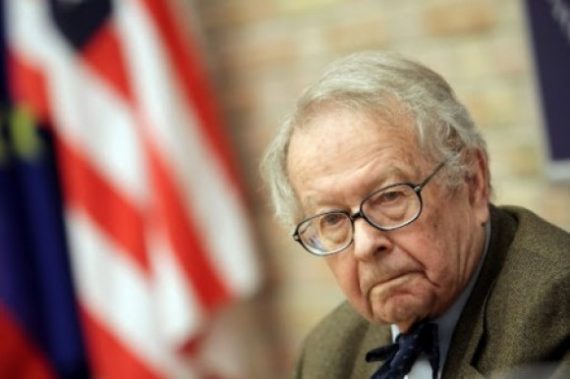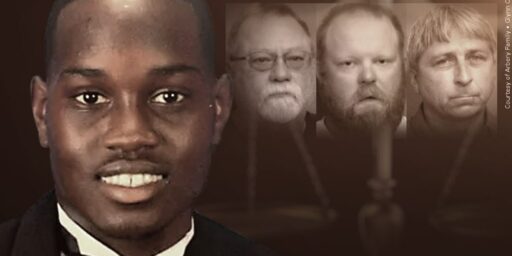Kenneth Waltz’ Legacy
My latest for The National Interest, "Kenneth Waltz's Crucial Logic," has posted.
My latest for The National Interest, “Kenneth Waltz’s Crucial Logic,” has posted.
Kenneth Waltz, the most important Realist theorist of the last half-century, died Monday, a few weeks before his 89th birthday.
His Columbia University doctoral dissertation was published in 1959 as Man, the State, and War. He followed up with Theory of International Politics in 1979. Georgetown professor of government Daniel Nexon doesn’t exaggerate when he says those two books “provided the framework within, and against, international-relations scholars have argued for much of the post-WWII period.” Indeed, some concepts Waltz introduced are quite literally part of the Day 1 lecture in any course on world politics.
[…]
Waltz’s version of Realism is likely to remain a major touchstone in the academic study of international relations for many more decades. One can only hope that it regains currency among those who make U.S. foreign policy as well.
The […] contains the meat of the essay, so I encourage you to read the rest at TNI. Waltz was a fascinating scholar, a tenacious but delightful debater, and his “coaching tree” is impressive, too. Unlike Stephen Walt and others who have written tributes this week, I never had the pleasure of being in Waltz classroom or working with the man. My only personal brush with him was at as part of a small group that cornered him for a couple hours a bar at a political science convention some fifteen years ago. (One of his former students, Chris Demchak, was our entree.) Despite having not only long since become a legend in the field and having been president of the American Political Science Association while I was an undergraduate, he was gracious and kind.
Here’s an interview from two years ago:
It confirms my recollection that he served in the Army in both World War II (naturally, in the Pacific Theater to take advantage of his extensive study of French and German) and the Korean War. It was a different era.
Here’s an older interview:







While James is obviously well versed in the ideology of Waltz sadly it seems he’s taken none of Waltz’s ideas on foreign relations to heart.
Then again had he done so he probably would have never gotten the sweet gig he currently has.
Can’t blame you Jim. A guy with kids to feed has to get paid after all.
It is always a pleasure when you meet an academic who is a ‘giant’ in their field and they turn out to be utterly unaffected, selfless, and decent. These are people who are secure in their knowledge and have their lives in balance and their egos are in check. You’re indeed fortunate to have come across Mr. Waits.
@al-Ameda: @al-Ameda: Mobile spellcheck/replacement is a drag …. “Waltz”
@Davebo: I don’t have the slightest idea what you’re talking about.
@James Joyner:
I’m referring to Walt’s refusal to support the Iraq war as well as other historically idiotic foreign policy stances.
@Davebo: While I ultimately supported the Iraq War, I’m not sure why it is you think it’s somehow responsible for my current employment. Many at the Council opposed intervention. Conversely, many supported the Libya war and are currently advocating for military intervention in Syria and Iran, all of which I oppose(d).